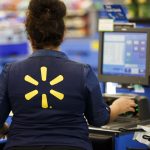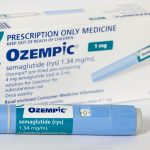The TGA will now turn its attention to approving the AstraZeneca vaccine, with drug manufacturer CSL to produce 50 million doses in Melbourne.The Prime Minister conceded “there’ll be the odd bumps here and there with production schedules overseas” but said the government had worked hard to ensure Australia could be self-reliant. “We had to work hard to achieve that and pay a bit of a premium for it,” he told 2GB Radio on Tuesday.“(But) it means that our vaccination program will not be completely hostage to the production schedules of countries overseas. That sovereign capability to produce the vaccine here, we made high priority.”The government has struck deals for 53.8 million AstraZeneca doses, including 1.2 million from overseas. Labor health spokesman Chris Bowen said the government had exposed Australia to international supply issues by failing to strike enough vaccine deals.
“We’re also at the mercy of the contracts that the Morrison government has entered into. Have they been good enough, and have there been enough of them is the challenge,” he told ABC Radio.
“There‘s no doubt (the AstraZeneca/CSL deal) been a good move … (but) a lot of eggs have been put in that basket. “If the federal government had more deals earlier, we’d be better placed to deal with those local supply constraints.”NZ TRAVEL BUBBLE HALTED FOR 72 HOURSAustralia will halt travel to and from New Zealand after a woman in Auckland was infected with the highly contagious South African variant. Health Minister Greg Hunt announced the government will suspend the “green zone” travel bubble with New Zealand for a minimum of 72 hours out of “an abundance of caution”. Anyone who has arrived in Australia on a flight from New Zealand on or since January 14 is being asked to isolate and arrange to be tested and to remain in isolation until they have a negative test.
New Zealand health officials on Monday said it was highly likely the 56-year-old woman was infected in hotel quarantine at the Pullman hotel in Auckland. It is believed she contracted the virus from an infected person on the same floor of the hotel where they both quarantining. Dr Ashley Bloomfield said surface or airborne infection was still a possiblity but person-to-person infection looked most likely. PFIZER VACCINE APPROVED BY AUSSIE WATCHDOGIt comes as the first coronavirus vaccine has been approved by Australia’s medical watchdog, with the first jabs to be given within weeks.The Therapeutic Goods Administration approved the Pfizer vaccine on Monday for Australians aged over 16.Recipients will need two doses at least 21 days apart, with priority to be given to aged care residents and staff, frontline healthcare workers, and quarantine and border officials.Pfizer now has to ship the vaccines to Australia and the government expects vaccinations to start later next month.But the company has experienced delays with deliveries overseas, with the government cautioning this month that while it is aiming for late February, that could be pushed back to early March.Mr Morrison said the approval meant the Pfizer vaccine was “safe, effective and of a high standard”.“Australians should take confidence in the thorough and careful approach taken by our world-class safety regulator,” the Prime Minister said.“Our priority has always been to keep Australians safe and protect lives and livelihoods. Today’s approval is another big step forward for our community, particularly in the protection of our most vulnerable people.”He said it was not an emergency approval, but it is expected to arrive late February. Health Minister Greg Hunt said the vaccine rollout is likely to start with approximately 80,000 doses per week, if not more.Mr Morrison said Australians would get two doses of the Pfizer vaccine as expected over 21 days. The rollout of the AstraZeneca vaccine, to be made locally by CSL in Melbourne, will see supplies of approximately one million doses per week commencing in late March.Mr Hunt said they were still listening to medical advice from an expert panel on whether we should secure the Moderna vaccine.
NED-2281 Pfizer Vaccine
Professor Brendan Murphy said a very “careful clinical decision” would be made on giving the Pfizer vaccine to the elderly given 23 older people in Norway died after being given the jab. “The TGA advice – and we have been concerned about this – for the very elderly and frail, that will need a very careful clinical decision,” he said.“That is something that would need to be – where the risks versus – the benefits of vaccination need to be carefully considered. The vaccine is registered for all ages over 16 but there will be specific advice … around particularly people who are very frail and close to end of life.” Prof Murphy said the two vaccines Australia will be getting first — Pfizer and AstraZeneca — are both very good at preventing clinical COVID disease and particularly severe disease.“That is great, that will stop people getting clinically sick and hopefully people getting sick and needing treatment and unfortunately dying,” he said.“We don’t yet know how effective they are at preventing the transmission of the virus. “Those arrange studies that were published, the phase 3 trials are based around prevention of clinical disease.
We will be progressively getting data over the coming months about the impact on transmission of the virus. It stands to reason that these vaccines will also prevent, to some degree, transmission of the virus but we don’t know how effective they are at doing that.”He said this will be the strategy we are going to be adopting and will evaluate in the next three months while we ramp up vaccination. “The other thing we don’t know is how long the immunity of these vaccines will last. It may be that people will need additional doses of vaccines, possibly annually. These things are completely unknown at the moment,” he said. He added: “We can now get that vaccine shipped to Australia, do the batch testing and start our vaccination program, according to our schedule. As Minister Hunt and the PM have said, we also have one of the few countries in the world that have this luxury of having onshore production. “We know the whole world will be competing and there will be supply chain difficulties for vaccines manufactured offshore for every country in the world.”Prof Murphy also said they are not in a “crisis mode” where they have to go and sign up to another vaccine agreement for access to the Moderna vaccine. Mr Morrison thanked Australians, saying: “I have a simple message to Australia, thank you Australia. Thank you that you have put us in a situation that is the envy of most countries in the world today. “We intend to keep it that way. We intend to remain vigilant. We intend to continue to set the pace and set the standards by which we can ensure that we keep Australians safe and we save lives and we save livelihoods which have always been our twin goals.”NEW PUSH FOR COVID LAWS BEFORE VACCINE ROLLOUT New laws should be passed to require tech giants to reveal the most viral COVID-19 material online to expose misinformation ahead of Australia’s vaccine rollout, a public health coalition has warned. The coalition of immunisation and tech experts has signed an open letter to all federal MPs urging the Australian government to mandate Google, Facebook and Twitter have “live lists” which could feature demographic information of users sharing fake news.The Doherty Institute in Melburne has joined forces with Reset Australia, the Immunisation Foundation of Australia and the Immunisation Coalition to push for the change. “A ‘live list’ of the most popular COVID-related material being shared on social mediacan and should be generated – and updated in real time – by the major big tech platforms,” the letter, being published online Monday, will state. Reset Australia said February’s vaccination rollout could be derailed by “growing distrust” and false online claims.It wrote “the deadly and hidden spread of COVID-19 misinformation on social media” is a vulnerability.“We know that misinformation, spread via platforms like Facebook, is hampering the efforts of Australian medical authorities,” it said.“As things stand, we are playing catch-up with a misinformation machine that is two steps ahead of us.”Tech companies including Google, Facebook and Twitter have rejected changes that would make them responsible for misinformation, but a “live list” would be a first step towards stopping fake news spreading online.Communications Minister Paul Fletcher has backed the new push.
NED-2712 Aus Vaccine Hopes REBUILD
AUS OPEN STAFF LINKED TO COVID-19Three staff linked with the Australian Open who tested positive to COVID-19 have been found to have the highly contagious UK mutant strain.COVID-19 Quarantine Victoria confirmed on Saturday night three non-playing quarantine residents associated with the tournament had the UK variant of the virus.A spokeswoman said all three cases had been in hard lockdown since they landed in Melbourne.
“The residents arrived in Melbourne on a dedicated Australian Open charter flight on January 15 and returned their first positive tests on January 15, 17 and 18,” she said.“The three residents include two men in their 30s and a man in his 50s and all are non-players.”Victoria on Sunday recorded no new locally acquired coronavirus cases in the past 24 hours, while one case has been identified in hotel quarantine.
NED-2974-UKs-Mutant-Covid-Strain
It comes as a 10th person connected to the grand slam tournament tested positive to coronavirus after a new case was confirmed on Saturday night.The new case was a man in his 20s and is a not a player.There are now 216 primary close contacts of the 10 cases linked with the Australian Open, with 941 tests taken in the past 24 hours.The number of active cases in Victoria is 33, made up of one locally acquired case linked to the Black Rock restaurant cluster.NSW has recorded no new locally acquired cases of COVID-19 for the seventh day in a row.There were three cases acquired overseas.
NED-1859 State of our borders
NSWThere are no restrictions around travelling to or from regional or rural NSW, or other areas of NSW.However, NSW Health currently recommends delaying non-essential travel within NSW, especially between Greater Sydney and regional and rural areas.There are no permits required for people entering NSW from interstate.
FACE MASKS
In Greater Sydney (including Wollongong, Central Coast and Blue Mountains, face masks are mandatory in certain indoor settings. A $200 on the spot fine will apply if you do not comply with the requirements to wear a face mask.Children aged 12 and under are exempt but are encouraged to wear masks where practicable.Places where face masks must be wornYou must wear a face mask indoors when you enter or work at*retail or business premises that provides goods or services to the public including*supermarkets*shopping centres*banks*post offices*hairdressers.*residential aged care facilities (visitors, not residents).Premises that are used for the purpose of providing health services are not retail premises or business premises.Face masks must be worn indoors at all NSW airports and on domestic commercial flights into or out of NSW, including when the flight is landing at or taking off from the airportFace masks are also mandatory when you are using public transport or are a passenger in a taxi or rideshare vehicle when you are waiting at a public transport waiting area (such as a bus stop, train platform or taxi rank) for all staff in hospitality venues and casinos for patrons using gaming services.All Northern Beaches residents are to follow the restrictions for Greater Sydney.SOUTH AUSTRALIATravellers are not permitted to travel to South Australia from the Greater Sydney, Central Coast and Wollongong areas unless they are an essential traveller or an exempt person.From January 17, travellers from the Greater Brisbane area do not have to undergo 14 days of self-quarantine upon arrival in South Australia but must submit to a COVID-19 test on day 1, 5 and 12. VICTORIAVictoria has reopened its border to the majority of Sydney.The traffic light-style system permits travel from “green zones” (no quarantine required) and “orange zones” (travellers required to be tested for COVID-19 within 72 hours of arrival and isolate until they receive a negative result).People in Brisbane are allowed to travel to Victoria without needing to apply for an exemption under a relaxation of the state’s border restrictions.
NORTHERN TERRITORYAll arrivals to the Northern Territory (NT) must fill in a Border Entry Form and complete 14 days of mandatory supervised quarantine at their own expense, if they have recently been in an active declared COVID-19 hot spot. This includes children returning from a hotspot.
QUEENSLANDMost people can travel freely to Queensland unless they have been in a COVID-19 hotspot or in any part of NSW. Road border checkpoints are in place and border passes are required for anyone entering Queensland from NSW.
WESTERN AUSTRALIAInterstate travel is permitted into and around WA, depending on where travellers have come from and who they’ve had contact with in the 14 days prior to travel. They are also subject to conditions, including completing a G2G PASS declaration prior to entry.The ACT, NT, SA and Tasmania are deemed very low risk. Travellers from Victoria are required to self-quarantine for 14 days at their own expense. Queensland and NSW travellers — deemed medium risk — must wear masks, self-quarantine for 14 days and will be tested within 48 hours of arrival. TASMANIATravellers from Greater Sydney, the Northern Beaches and Wollongong must self-quarantine on arrival for 14 days. AUSTRALIAN CAPITAL TERRITORYThe ACT will lift its travel ban for Sydney’s northern beaches residents on Tuesday. Prior to this, non-ACT residents have been banned from entering the territory if they were in a COVID-19 affected area of NSW.
Powered by WPeMatico






